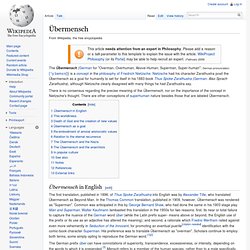

Friedrich Nietzsche. 1.

Life: 1844–1900 In the small German village of Röcken bei Lützen, located in a rural farmland area southwest of Leipzig, Friedrich Wilhelm Nietzsche was born at approximately 10:00 a.m. on October 15, 1844. The date coincided with the 49th birthday of the Prussian King, Friedrich Wilhelm IV, after whom Nietzsche was named, and who had been responsible for Nietzsche's father's appointment as Röcken's town minister. Nietzsche's uncle and grandfathers were also Lutheran ministers, and his paternal grandfather, Friedrich August Ludwig Nietzsche (1756–1826), was further distinguished as a Protestant scholar, one of whose books (1796) affirmed the “everlasting survival of Christianity.”
When Nietzsche was nearly 5 years old, his father, Karl Ludwig Nietzsche (1813–1849) died from a brain ailment (July 30, 1849) and the death of Nietzsche's two-year-old brother, Ludwig Joseph, traumatically followed six months later (January 4, 1850). Image of the day. 40 Belief-Shaking Remarks From a Ruthless Nonconformist. If there’s one thing Friedrich Nietzsche did well, it’s obliterate feel-good beliefs people have about themselves.

He has been criticized for being a misanthrope, a subvert, a cynic and a pessimist, but I think these assessments are off the mark. I believe he only wanted human beings to be more honest with themselves. He did have a remarkable gift for aphorism — he once declared, “It is my ambition to say in ten sentences what others say in a whole book.” A hundred years after his death, Nietzsche retains his disturbing talent for turning a person’s worldview upside-down with one jarring remark. Even today his words remain controversial. Here are 40 unsympathetic statements from the man himself. 1. 2. 3. 4. 5. 6. 7. 8. 9. 10. 11. 12. 13. Friedrich Nietzsche. Nietzsche Quotes. Übermensch. The Übermensch (German for "Overman, Overhuman, Above-Human, Superman, Super-human"; German pronunciation: [ˈˀyːbɐmɛnʃ]) is a concept in the philosophy of Friedrich Nietzsche.

Nietzsche had his character Zarathustra posit the Übermensch as a goal for humanity to set for itself in his 1883 book Thus Spoke Zarathustra (German: Also Sprach Zarathustra), although Nietzsche clearly disagreed with many things he had Zarathustra say. There is no consensus regarding the precise meaning of the Übermensch, nor on the importance of the concept in Nietzsche's thought. There are other conceptions of superhuman nature besides those that are labeled Übermensch. Übermensch in English[edit] The German prefix über can have connotations of superiority, transcendence, excessiveness, or intensity, depending on the words to which it is prepended.[3] Mensch refers to a member of the human species, rather than to a male specifically. This-worldliness[edit] Death of God and the creation of new values[edit]